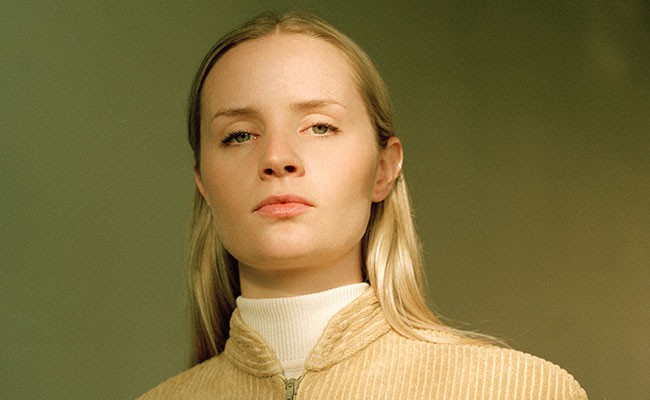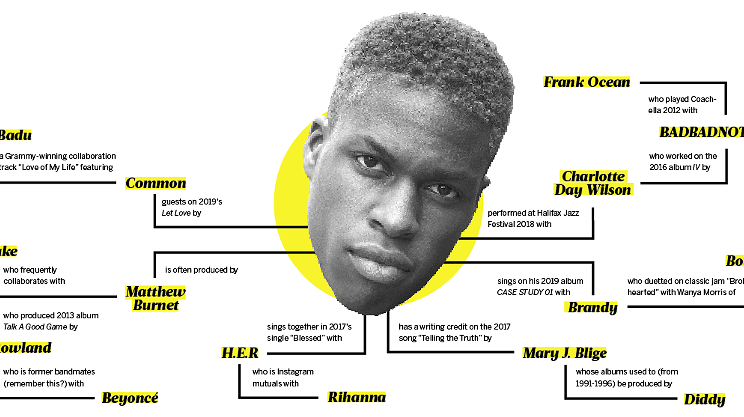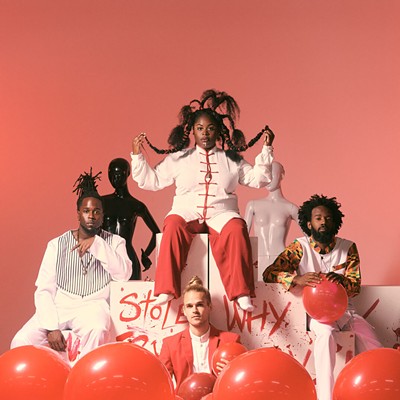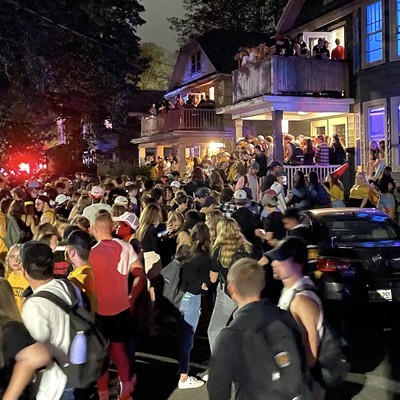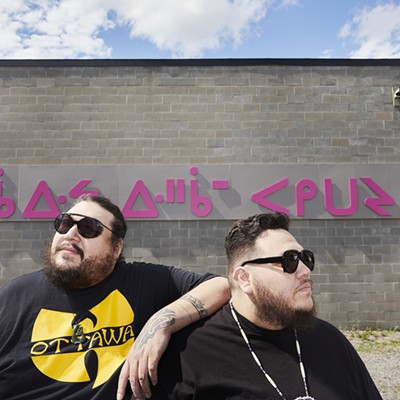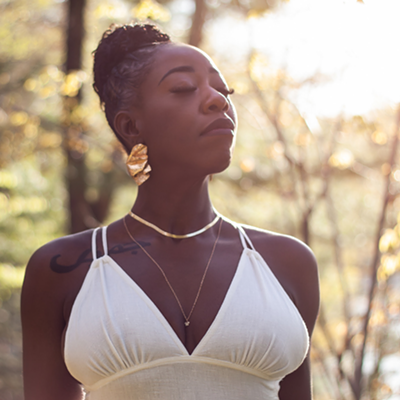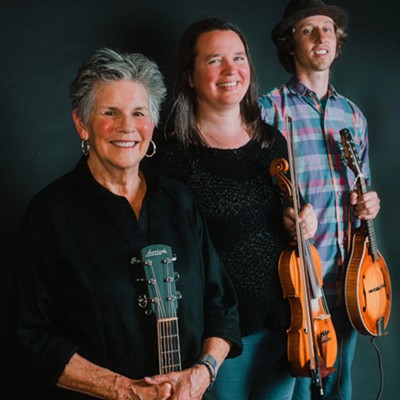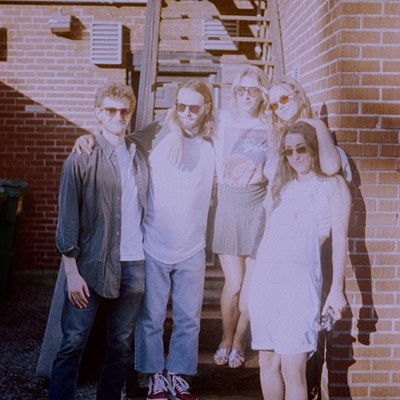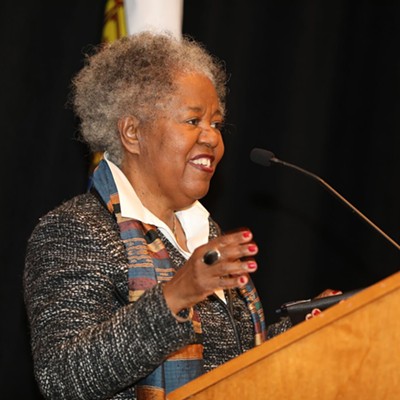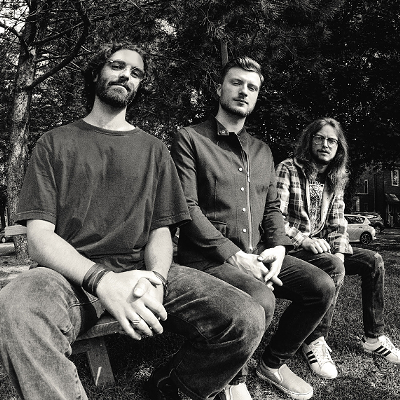Charlotte Day Wilson w/Daniel Caesar Sunday, July 15, 8:30pm Waterfront Stage $32-$38
Charlotte Day Wilson wants you to feel something—but she also acknowledges just how hard it can be to feel anything at all.
The self-made R&B singer and producer—now back in her native Toronto after a stint living, studying and fronting local smooth-talkers The Wayo in Halifax—has slowly made a career singing quiet storms of emotion. But the magic of her music often lies in the uncertainty of what she's singing about—feelings are feelings, even if we don't fully understand where they're coming from or who they might be for.
On "Find You," the penultimate track from her 2016 EP CDW, she gestures towards the emotional motivation that lies behind so much of her work. "I'm sipping still to get to you," she sings. "But it was me I was looking for." Wilson, like so many songwriters before her, uses her work to dig deeper into her own experiences and find ways to express and understand her emotion. But her music is just as much about documenting a feeling as it is about finding a way into feeling itself. Both camera and photograph, paintbrush and canvas—her work sees music as a tool in the greater project of connecting with others, and with herself.
"All of my music is always reflective of a personal experience, or elaborating on a story or something that has happened to me or someone I know," she says. Take her breakout single "Work," where her lyrics paint broad strokes that open a door into the anxiety that grows around the beginning of a new relationship. That song, and the following EP, launched Wilson onto a greater platform of success—something that she says led to exhaustion in her professional and personal lives.
Burnout is always frustrating, but seems especially so when your work is so deeply connected to your inner life. And when Wilson sat down to work on the follow-up to CDW, she found herself feeling barely anything at all.
"I was just going through, for a normally very emotional and connected-to-my-emotions person, I was going through a time where I couldn't really access any depth of emotion," she explains. "I was feeling quite numb."
Beyond a few references to the disintegration of a relationship, she's largely imprecise about the life events that led to her emotional vacancy. But she notes that it foregrounded some of the most emotionally draining work she's made so far—music that, through both its lyrical inspiration and melodic ebbs and flows, makes it impossible to not feel something, to feel anything.
"It was an interesting state of mind to be writing music in," she says. "I think, really, what I was trying to do was make myself feel something in the process of making very emotionally driven and heavy songs."
Stone Woman, the six- song EP that emerged from this period in Wilson's life, toes this line between stoicism and deep emotion. The surface level of the record feels as emotionally alive as ever—Wilson's voice is crystal clear, and her production references classic sounds and structures of R&B music that feel warm and familiar.
Listen a little closer, ho-wever, and her lyrics make reference to the uncertainty and doubt that consumed her emotional and creative life at the time of its making. On the song "Funeral," for example, she remembers attending a funeral with the hopes of stirring something, anything, inside of her. "I went to a funeral / just so that I could feel something," she sings. "Don't know what I'm living for/ if I don't feel nothing."
At the centre of the record sits the figure of the stone woman—an unmoving figure and reference that conjures images of both this emptiness and patience, strength and wisdom. "I had never thought of those two words together, never really pictured or thought of the image of a statue or something as a stone woman," says Wilson. "It kind of just came about phonetically. Once I had this mantra I kept saying over and over again— I don't know, something about it just really struck me. And it created a bit of a story for me too."
While Wilson maintains that the figure, like most of her music, isn't entirely autobiographical—"If you want it to be, if I want it to be any given day, sure"—it's hard to ignore the parallels between the two. In conversation and on record, she embodies patience—a virtue that feels indebted to classic works of R&B but seems increasingly rare in amid the clang and buzz of a fast-paced music industry.
"It's tough because I think that a lot of artists—myself included sometimes—just want things to happen," she says. "If they don't, it feels like something is going wrong. So I think it's important to keep in mind that pacing is not a bad thing. I've always seen my career as a 50-year-long career—I'm not looking at just having a couple years, like a one-hit wonder. I want to be doing this for as long as possible, so there's really no point in rushing it."
She speaks candidly about her resolve to resist the fast, consuming pace of the music business and work at her own pace, building a career with an eye for the long game. But beneath the industry talk you get the sense the same sentiment rings equally true in her personal life. Her music shows us that it's OK to not fully know who you are, that it's OK to feel unsure, that it's OK to take things at a pace that is different than the one that feels prescribed. She holds space for contradiction—"I am a very self-contradictory person"—and believes that, particularly for women and queer people like herself, it can be difficult but liberating to make work on your own terms.
"I've learnt to have a bit more patience and not expect that if I don't gain a certain amount of success by a certain age—that doesn't mean that you didn't make it," she says. "Everyone measures success in different ways and for me, I just reach certain benchmarks where I feel like 'OK, I'm doing the right thing.'
"I don't think I knew at all who I was when I was making Stone Woman, I think I still definitely am very lost," she says. "But the music that I've been writing recently—it's definitely been sounding a bit more clear to me, and if that means that I'm figuring out who I am as an artist then maybe I am figuring it out. Maybe."

